Sarah Schwartz

Trustworthy journalism comes at a price.
Scientists and journalists share a core belief in questioning, observing and verifying to reach the truth. Science News reports on crucial research and discovery across science disciplines. We need your financial support to make it happen – every contribution makes a difference.
All Stories by Sarah Schwartz
-
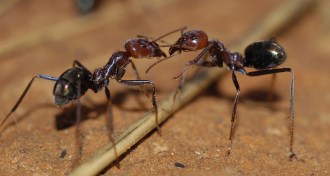 Animals
AnimalsAnt antennae provide chemical ID
Ants use their antennae to identify nest-mates and potential invaders. But antennae also produce the key compounds that ants use to tell friend from foe.
-
 Animals
AnimalsAnts’ antennae both send and receive chemical signals
Ants use their antennae to identify nest-mates and potential invaders. But antennae also produce the key compounds that ants use to tell friend from foe.
-
 Health & Medicine
Health & MedicineMachine makes drugs on demand
A new drug-making system rapidly produces a variety of medications on demand.
-
 Health & Medicine
Health & MedicineFridge-sized contraption makes drugs on demand
A new drug-making system rapidly produces a variety of medications on demand.
-
 Health & Medicine
Health & MedicineEnvironment still tied to MS risk
50 years ago, scientists reported a possible connection between the environment and multiple sclerosis risk.
-
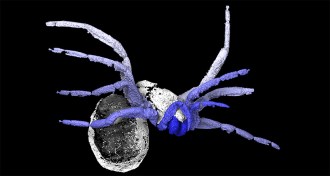 Animals
AnimalsAncient arachnid was almost a spider
A newly discovered ancient arachnid might offer clues on spider origins.
-
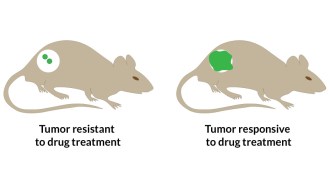 Health & Medicine
Health & MedicineCancer killers send signal of success
Newly designed nanoparticles deliver anticancer drugs and updates on tumor death.
-
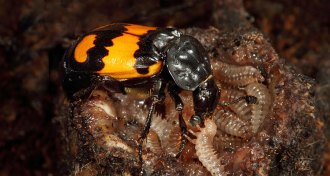 Animals
AnimalsFemale burying beetle uses chemical cue to douse love life
While raising their young, burying beetle mothers produce a chemical compound that limits their male partner’s desire to mate.
-
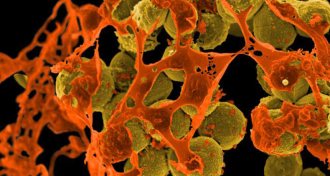 Health & Medicine
Health & MedicineMolecules found to counter antibiotic resistance
Molecules made in a lab can foil antibiotic resistance in bacteria.
-
 Oceans
OceansSwirls of plankton decorate the Arabian Sea
The dinoflagellate Noctiluca scintillans is taking over in the Arabian Sea, posing a potential threat to its ecosystem.
-
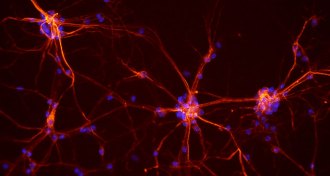 Neuroscience
NeuroscienceScientists still haven’t solved mystery of memory
50 years have refined a basic understanding of the brain, but scientists are still exploring how memories form, change and persist.
-
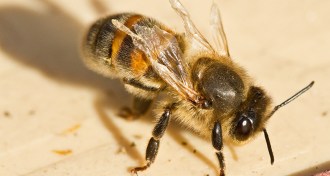 Animals
AnimalsMite-virus alliance could be bringing down honeybees
Parasitic mites and a virus have a mutually beneficial alliance while attacking honeybees.